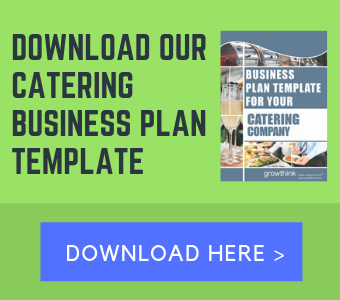Catering Business Plan Template
If you want to start a Catering business or expand your current Catering business, you need a business plan.
The following catering business plan template gives you the key elements to include in a winning plan for your own catering company. In addition to this template, conducting market research for your local customer base will help you identify potential market trends and customer segments to better understand the viability of your catering business.
Sample Business Plan For a Catering Company
Below are links to each of the key sections of a sample business plan for a successful catering business.
I. Executive Summary– The Executive Summary provides an overview of your business opportunity and summarizes the business plan.
II. Company Overview– The company analysis includes information about your business concept, catering services and legal structure.
III. Industry Analysis– The industry analysis includes market research that supports your business and provides insights into market trends and the catering industry.
IV. Customer Analysis– The customer analysis provides an overview of your target market.
V. Competitive Analysis– The competitive analysis should identify your direct and indirect competitors and highlight your competitive advantage.
VI. Marketing Plan– The marketing plan includes your marketing strategy, pricing strategy and search engine optimization plan.
VII. Operations Plan– The Operations Plan includes information on your company’s day to day operations and processes.
VIII. Management Team– The management team section includes a profile of the business owner and business management, their experience and company responsibilities.
IX. Financial Plan– The financial plan includes financial projections, a cash flow statement, profit and loss statement and balance sheet.

